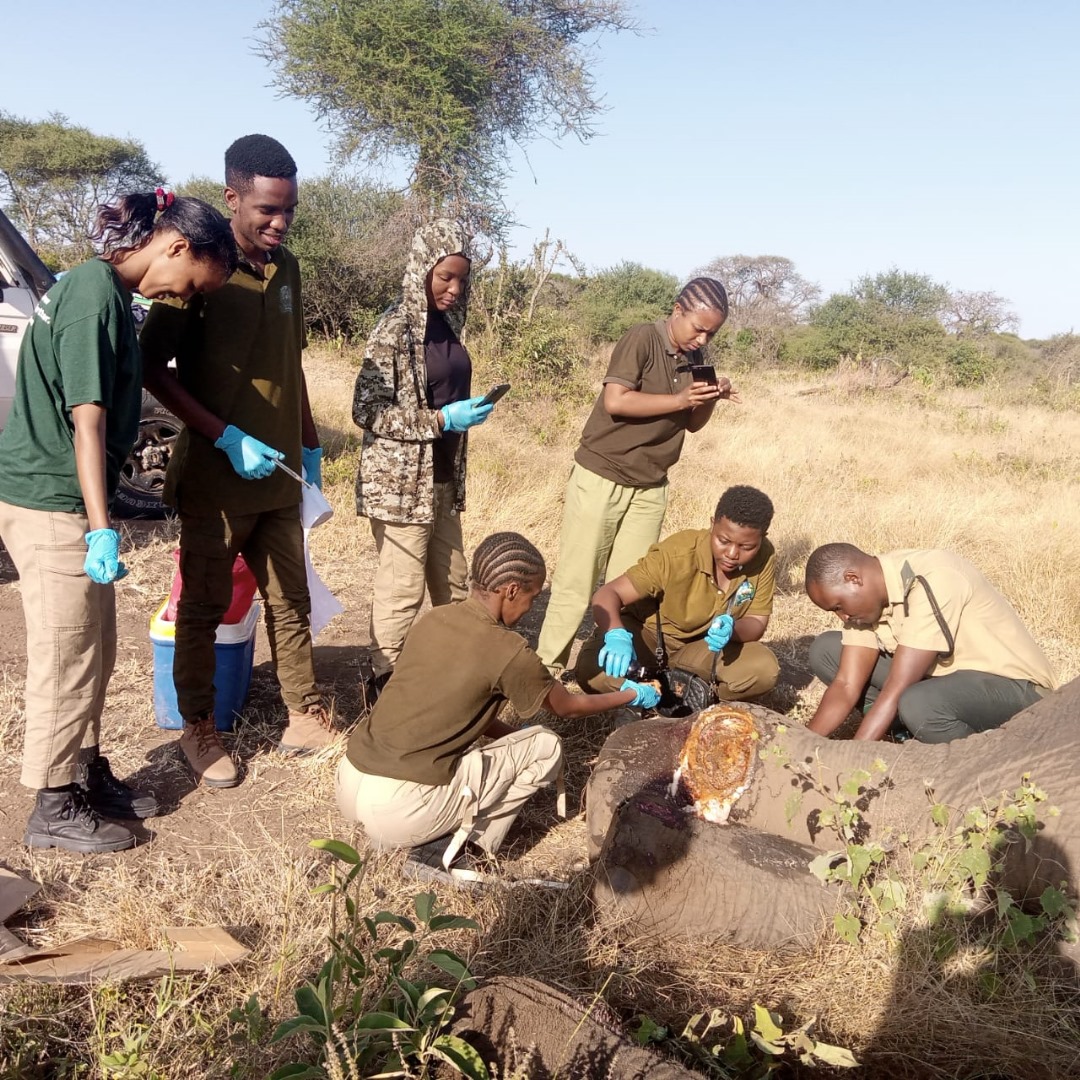Mountain climbing is one of the most exhilarating sports, delivering an unparalleled adrenaline rush. People find solace and pleasure in this activity, as it offers a fantastic way to rejuvenate oneself. An expedition like mountain climbing brings you closer to nature, fostering a deep connection with the environment.

A team of BSc. Wildlife Management students from the Department of Wildlife Management Celebrating their achievement
Mountain climbing is one of the most exhilarating sports, delivering an unparalleled adrenaline rush. People find solace and pleasure in this activity, as it offers a fantastic way to rejuvenate oneself. An expedition like mountain climbing brings you closer to nature, fostering a deep connection with the environment.
Currently, our Third Year BSc Wildlife Management students are in Kilimanjaro National Park for their Field Training Practical attachment. Among their many practical experiences, they faced an extraordinary challenge: climbing to Uhuru Peak, the roof of Africa 🌍, via the Marangu route on Mount Kilimanjaro.
The adventure began at the Marangu Tourist Gate on June 16. After an arduous climb, they triumphantly reached the peak at 6 AM on June 19. Many undertook the challenge, but the warriors who conquered Uhuru Peak were Joseph Mboya, Praygod Lyaro, Epimark Ritti, Aman Obedi, Antony Mteleka, Sebald Urassa, and Melkizedeck Kijomoko. Kudos to their supervisor, Prof. Alfan A. Rija, for organizing this transformative experience and making a dream come true for many students.
Mountain climbing is not just an adventurous experience; it teaches resilience, fearlessness, and the ability to face challenges head-on. Conquering such great heights is no easy feat and can intimidate even the toughest individuals, but the thrill and sense of achievement make it all worthwhile.
Besides their practical training in Kilimanjaro National Park, our students are gaining hands-on conservation experience in 13 other national parks managed by the Tanzania National Parks Authority (TANAPA): Serengeti, Burigi-Chato, Katavi, Ruaha, Mikumi, Nyerere, Udzungwa, Saadani, Lake Manyara, Tarangire, Arusha, Mkomazi, and SaaNane Island in Lake Victoria. They are acquiring practical skills in resolving human-wildlife conflicts, engaging communities in conservation, protecting wildlife through anti-poaching and intelligence activities, managing habitats by controlling invasive species, monitoring wildlife diseases, planning infrastructure development in protected areas, and managing tourism activities. Additionally, some students are training in four game reserves: Selous, Wami Mbiki, Muhesi, and Swagaswaga, managed by the Tanzania Wildlife Management Authority (TAWA).
In today’s fast-paced world, dominated by technology, the importance of outdoor education cannot be overstated. SUA offers a curriculum that integrates outdoor learning, providing numerous benefits for students, educators, and society. From fostering a deeper connection with nature to enhancing academic performance, outdoor education complements traditional classroom learning with invaluable experiences.
As enrollment for the next academic year approaches, we encourage potential students worldwide to consider SUA as their first choice for academic and future endeavors. Choosing SUA offers the added benefit of conducting wildlife safaris while pursuing a degree in wildlife conservation in some of our beautiful national parks, such as the Serengeti, which is one of the last remaining natural preserves on earth where a globally significant ungulate migration still thrives.
The SUA Management has been impressed by this adventurous assignment and congratulates all the students who participated and succeeded.





